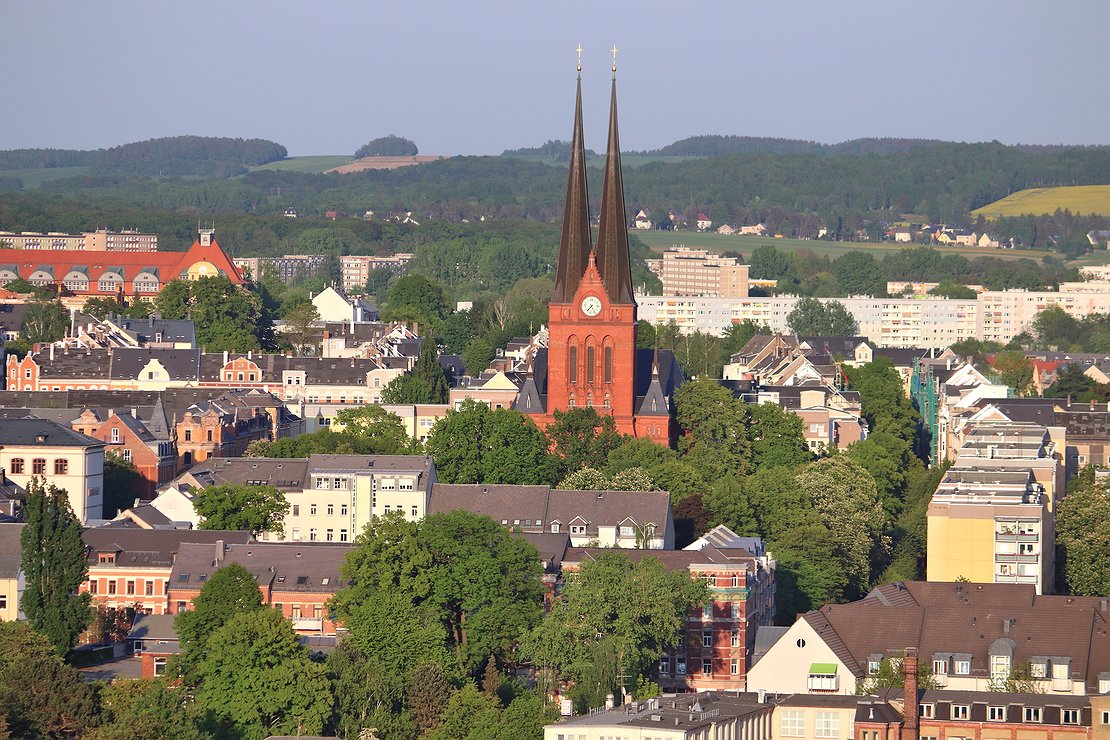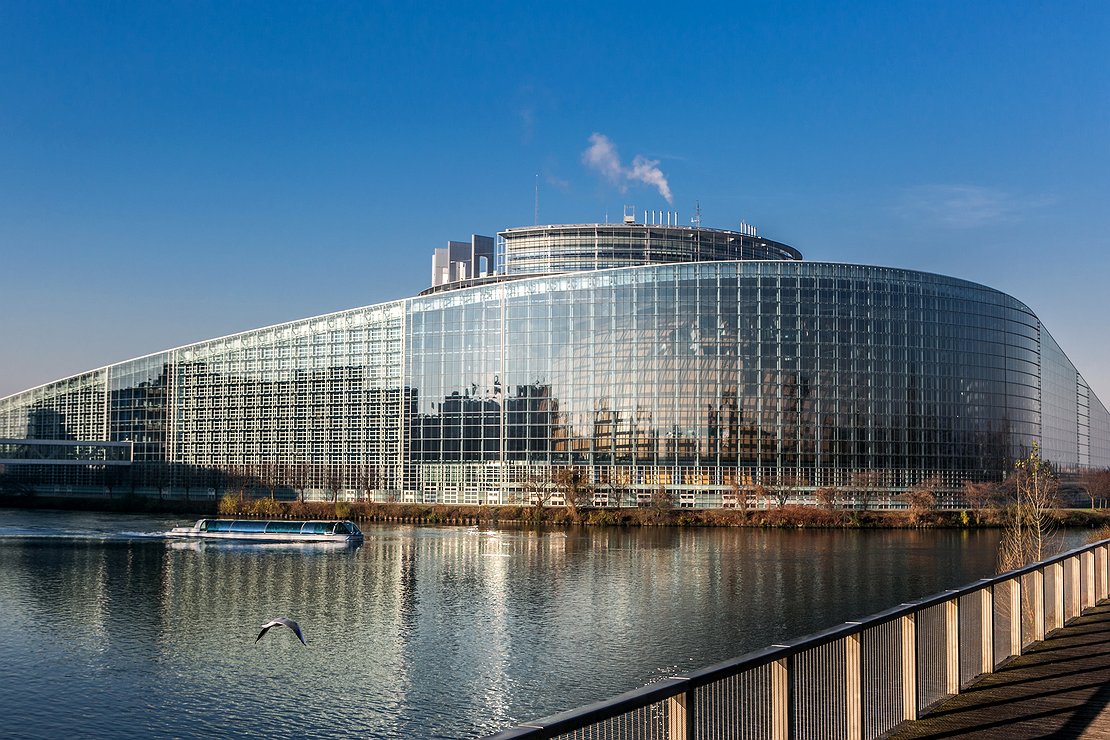
Demonstrations in Chemnitz:The Next Level of Outrage in Germany
If we are to believe the mainstream press, a medium-sized city in eastern Germany suddenly erupted with extreme right-wing violence; migrants and leftists were chased and battered; the Nazi-salute was openly shown – an offense in Germany – and the police were unable to uphold law and order. Oh yes, and, almost as an afterthought, that this was triggered by someone being killed “in a brawl” (CNN).
So, what actually happened in the city of Chemnitz (pronounced KEMM-nitz) on Sunday and Monday last week?
The man who was killed was a German. His name was Daniel H., a 35-year old married father of one, employed as a carpenter; he was born in Chemnitz and had a Cuban father. According to his employers and friends, Daniel was a diligent worker and a much-loved, friendly individual.
The exact circumstances of his violent death are not yet clear. However, the police have said that he was knifed “for no justifiable reason”. They have also arrested two suspects, an Iraqi and a Syrian, both in their 20s. This is just one of a sheer endless series of knife crimes in German towns and cities perpetrated by recent immigrants.
Chemnitz residents Frank Stoner, an ex-DJ, and Frank Höfer posted a video on YouTube on 28 August, where they talk about this latest event. They mention the fact that, after 8 pm every evening, the inner city turns into a de facto no-go zone, with rival groups of migrants regularly chasing and violently fighting each other, often causing damage to parked cars and the like, and frightening passers-by. They also said that in such cases the police often take 30 or 45 minutes to arrive, although their main station is a mere 500 meters away. This state of affairs, Stoner and Höfer agree, didn’t exist until about 3 years ago, coinciding with Angela Merkel’s fateful decision to allow swathes of foreigners from war-torn regions and completely alien cultures to enter the country practically unchecked.
Separately, Torsten Kleditzsch, editor in chief of the Saxony regional newspaper “Freie Presse”, strenuously denied that any man-hunts had taken place. He also berated nationwide mainstream media for using such terminology for a small number of exceptional, low-level altercations during an evening that was actually relatively peaceful.
You won’t find this information in the mainstream media, who are busy being hysterical about the occasional, unrepresentative Nazi salute from within demonstrations against the recent killing, and unproven allegations of man-hunts by Germans against migrants. But it’s an important piece of information, because it gives us a context that helps explain the current tensions and unrest in Chemnitz.
I guess the police were reluctant to tackle the immigrant troublemakers for the following reasons: This clientele is notoriously difficult to handle. Often, they have only rudimentary knowledge of German or English, are horrendously disrespectful and therefore difficult to handle. Also, probably most importantly, the police know from experience that the punishments the perpetrators receive is not nearly enough to deter them from carrying on. Often, the criminals are let off with a warning, which, considering their background, is probably less than nothing. So the officers are understandably reluctant to risk their skin trying to pull the politicians’ coals out of the fire.
This theory is confirmed by the circumstances of the leaked arrest warrant. It was a prison officer who made the document public. Now everyone knows that one of the two arrested is a repeat offender, including bodily harm. He was also no longer an asylum seeker but only had the status of being ‘tolerated’. He had come to Germany in October 2015, from Bulgaria. In 2016 it was agreed with Bulgaria that he should be deported, but for some reason that never happened. That’s the ‘new normal’ of Merkel’s Germany. It’s also ‘normal’ that the media concentrated on the question of who within the police had leaked the document, instead of on the content.
The whistle-blower, called Daniel Zabel, who turned himself in to the authorities, published an open letter on August 31 about the reasons for his actions: “I want the public to know what happened. I would like to see an end to speculation about what happened, and I would like the media to no longer have the sovereignty to question the actual happenings, to manipulate them or to twist them in a way that is convenient for them.” He added that, “every day, as a prison officer, I am at the heart of something that, a few years ago, didn’t happen in our country in such intensity and manner. Nevertheless, every day I observe that most people are being lied to about the changes in our country or do not want to admit the truth. However, at least regarding the manslaughter, or murder, of Chemnitz, I no longer wanted to be part of this silent mass, but to ensure that the truth and only the truth comes to light.”
He would not have acted like that, if he’d thought he was the only officer thinking that way. In other words, this is a borderline insurgency where a number of enforcement officials are siding with the outraged public and against their superiors. This particular official has already lost his job and is likely to face charges. Many Germans will consider him a hero.
What does all this tell us about the conditions in Germany? In certain areas, in particular in eastern Germany, the constant hooliganism and antisocial behaviour of some of “Merkel’s guests,” coupled with an inability or unwillingness of the authorities to do anything about it, and the mis- or underreporting by the mainstream media have contributed to a powder keg that has now exploded. Admittedly a relatively small powder keg, but the explosion is big enough to have raised the level of outrage to a new threshold. A first threshold was crossed at New Year’s Eve 2015/16 in Cologne. After that, it was no longer possible to deny that the sudden mass influx of migrants would cause problems for the general population. The next threshold was the petition to the federal parliament in spring of this year, signed by more than 150,000 professionals, demanding a reinstitution of the rule of law at the borders and within the country. It has yet to be debated in the Bundestag, but it was a striking sign that the unease in the population had moved from the working class to the middle class.
The events in Chemnitz in the late summer of 2018 mark a third stage of outrage: people are losing their fear and discovering strength in numbers. A whistle-blower forfeits his job and possibly his freedom. Many people are no longer afraid of being denounced – wrongly, in the overwhelming majority of cases – as ‘extreme right-wingers.’
At the same time, the level of hysteria in politics and the mainstream media is becoming more unintentionally comical and more sinister. In a hastily arranged press conference, the Prime Minister, or Governor, of the state of Saxony (to which Chemnitz belongs), Michael Kretschmer, babbled about the need to “preserve our value system” (of tolerance and humanity and so on) in the face of right-wing extremism. Only he didn’t say “value system,” which in German would have been “Wertesystem.” Instead, he said “Wahrheitssystem,” which in English means “truth system.” An interesting Freudian slip. Ministry of Truth, anyone?
A more sinister reaction came from the Federal Chancellor’s speaker. He denounced the spontaneous demonstrations in Chemnitz as “Zusammenrottungen,” a word which means a gathering of people with malign intent, or even a gathering of wild animals. The use of this dehumanizing language – a hallmark of antifa, by the way – by a top level government official is sinister because the exact same word was employed by officials and authorities of the dying communist GDR when denouncing demonstrations against their regime. It’s even more sinister when considering that the Chancellor herself grew up in the GDR and was a functionary of the communist youth organisation, but during the chaos of the breakdown of the GDR somehow managed to re-invent herself as a civil rights campaigner.
It’s no surprise that ‘Chemnitz’ happened in eastern Germany first. There are two reasons for this. They are the same reasons for the relative strength of the anti-establishment party AfD in the eastern German states. One: the people there still have a vivid, living memory of officials and media unashamedly lying through their teeth to them. They know the signs. They’re waking up and smelling the coffee, or rather a rat. Two: eastern Germany, while locked away behind the Iron Curtain during the Cold War, was sealed off until 1989 from the psychologically corrosive effects of 1960s cultural Marxism and relativism. This western flavor of socialism was concocted by the Frankfurt School and now has hegemony throughout the western world. That is also, by the way, why it was the eastern European countries which immediately boycotted Merkel’s multicultural doctrine of refugee contingents. These peoples still value their age-old culture and fear the consequences of its possible loss much more keenly than their contemporaries in the West.
What will happen next in Germany? That’s difficult to predict in detail. But one thing is certain. As long as officials and authorities refuse to tackle the problems they have created regarding the new wave of immigration, the cases of harassment and outright terror will continue to pile up, and the pressure for change from below will continue to grow. It could even mean that after the next election in the state of Saxony, due in early September 2019, the insurgent AfD could become the strongest party (they already have 25 percent in the state’s polls), although an overall majority currently looks unlikely. Mainstream media will continue to lose credibility, if they don’t report the full picture, and instead simply line up to denounce and criminalize those who voice their frustrations and fears. However, even if they do turn around, they will lose credibility, as they will then have to explain to their readership why they had supported Merkel’s ‘refugees welcome’ stance for so long.
Speaking of polls, after the demonstration in Chemnitz last Monday, the pollster Civey conducted a representative Germany-wide survey, in which they asked the manipulative question: “What do you personally think of the current radical right-wing riots in Chemnitz?” About 70 percent answered with “I condemn them” or “I tend to condemn them.” 20 percent said they didn’t condemn them or tended not to. In other words, 20 percent were not duped by the question. That coincides roughly with the current poll number for the AfD in all of Germany, which is 17 percent. In all, the German establishment has lost the trust of 20 percent of its voting population. If that doesn’t worry them, it should.
In the weeks following Merkel’s fateful decision to invite the world to Germany, American historian and economist Gary North commented that the huge influx of migrants would end what he called the humanistic, liberal, welfare-statist and non-reproductive culture of Europe. It would be replaced by something completely different. “Bye-bye Europe,” he titled above his blog entry on lewrockwell.com on 5th October 2015 somewhat facetiously, “it was nice while it lasted.”
Specifically regarding the effects of mass immigration from developing countries on the welfare states of Europe, North added on his own website on 6th November of that year: “We are seeing the beginning of the end of what [Calvinist theologian Rousas J.] Rushdoony called the politics of guilt and pity. Red revolution will never sweep across Europe, contrary to Karl Marx. But red ink will. This will be a delight to watch . . . from a safe distance.” Being in Europe and thus rather closer to the action than North, I can confirm that, while it is not exactly a delight to watch from nearby, it is certainly ‘interesting’ – as in the famous Chinese curse.




